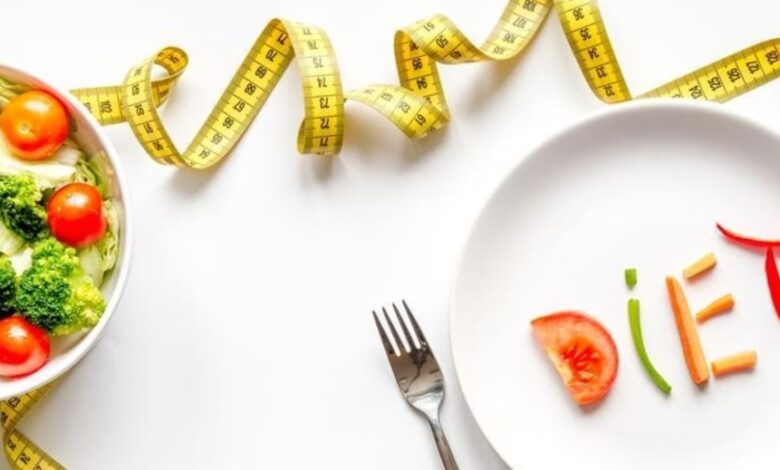Separating Fact from Fiction: Debunking Common Nutrition Myths and Misconceptions

In the age of information, navigating the landscape of nutrition advice can be overwhelming. While the desire to make healthy choices is commendable, separating accurate information from myths and misconceptions is crucial. This article aims to debunk common nutrition myths and provide evidence-based insights to help you make informed dietary decisions for optimal health.
Myth 1: Carbohydrates Are Always Bad
Carbohydrates have often been unfairly demonized in the pursuit of weight loss. However, not all carbohydrates are created equal. Whole grains, fruits, vegetables, and legumes are sources of complex carbohydrates that provide essential nutrients and dietary fiber. These carbohydrates are a vital energy source and contribute to overall well-being. Moderation and choosing nutrient-dense options are key.
Myth 2: Fat-Free Foods Are Healthier
The fat-free trend led many to believe that eliminating all fats from their diets was the way to go. However, fats are essential for various bodily functions, including hormone production and nutrient absorption. Instead of avoiding fats altogether, focus on consuming healthy fats like avocados, nuts, seeds, and olive oil in moderation.
Myth 3: All Calories Are Equal
While calorie balance is important for weight management, not all calories have the same impact on health. Nutrient density matters—foods rich in vitamins, minerals, and fiber provide more nourishment than empty-calorie processed foods. Prioritize whole foods to ensure you’re getting the most nutritional value from your calories.
Myth 4: Eating Late at Night Causes Weight Gain
The belief that eating after a certain time leads to weight gain is a common misconception. Weight management is determined by your overall caloric intake and expenditure over time, not the timing of meals. Focus on the quality of your meals and snacks rather than the clock.
Myth 5: Skipping Meals Helps with Weight Loss
Skipping meals can disrupt your metabolism and lead to overeating later in the day. Consistent meals and snacks help stabilize blood sugar levels and prevent extreme hunger. Balanced meals that include protein, carbohydrates, and healthy fats are essential for sustaining energy and promoting weight management.
Myth 6: Detox Diets Cleanse Your Body
Detox diets often promise to cleanse your body of toxins, but the body’s natural detoxification systems, primarily the liver and kidneys, are highly efficient. Extreme detox regimens can be harmful and may lead to nutrient deficiencies. Instead, focus on a balanced diet rich in whole foods to support your body’s natural detoxification processes.
Myth 7: Supplements Can Replace a Healthy Diet
While supplements can play a role in addressing specific nutrient deficiencies, they cannot replace a well-rounded diet. Whole foods provide a wide range of nutrients, including fiber and antioxidants, that supplements lack. Aim to obtain most of your nutrients from food sources and consult a healthcare professional before taking supplements.
Myth 8: Eating More Protein Builds More Muscle
While protein is essential for muscle repair and growth, consuming excessive amounts won’t necessarily lead to more muscle gain. The body has a limit to how much protein it can utilize. Focus on consuming adequate protein for your activity level and complement it with a balanced diet and proper strength training.
Myth 9: Organic Foods Are Always Healthier
While organic foods may be free of synthetic pesticides and chemicals, they’re not inherently more nutritious. Organic cookies are still cookies. Focus on choosing organic options for produce on the Environmental Working Group’s “Dirty Dozen” list, but remember that eating a variety of fruits and vegetables, regardless of their organic status, is key.
Myth 10: Red Meat Is Always Unhealthy
Red meat can be part of a healthy diet when consumed in moderation. It’s a source of essential nutrients like iron and vitamin B12. Opt for lean cuts and limit processed meats like sausages and hot dogs, which are associated with health risks. Incorporate plant-based protein sources like beans, lentils, and tofu into your diet as well.
Conclusion
In a world flooded with nutrition advice, it’s crucial to distinguish between fact and fiction. Debunking common nutrition myths empowers you to make informed dietary choices that promote your well-being. Remember that a balanced and varied diet, moderation, and mindfulness about the quality of your food are key components of a healthy lifestyle. Consult with healthcare professionals or registered dietitians for personalized guidance and recommendations based on your individual needs and goals. By arming yourself with accurate information, you’re on the path to nourishing your body and embracing a sustainable approach to health and wellness.





